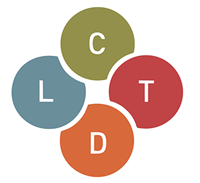Curriculum Design
The relationship between learning and teaching is complex but well-researched. At CLTD, we embrace this complexity by employing evidence-based curriculum practices suited to the South African regulatory environment, taking into account the social ills and expanding divides prevalent in our society.
In partnership with the faculties, we search for ways to engage authentically and equitably by consciously seeking alternatives that centre student access with success (primarily academic, but also emotional and social). Being academics and scholars ourselves, CLTD offers professional learning opportunities to staff (academic, professional, as well as teaching assistants and tutors) about curriculum conceptualisation, internal and external approval, implementation, and review.



